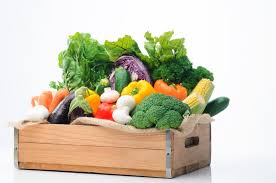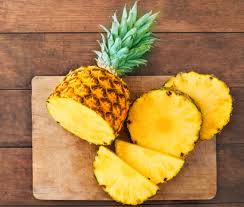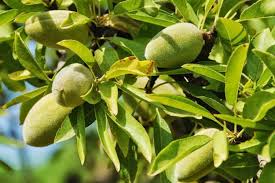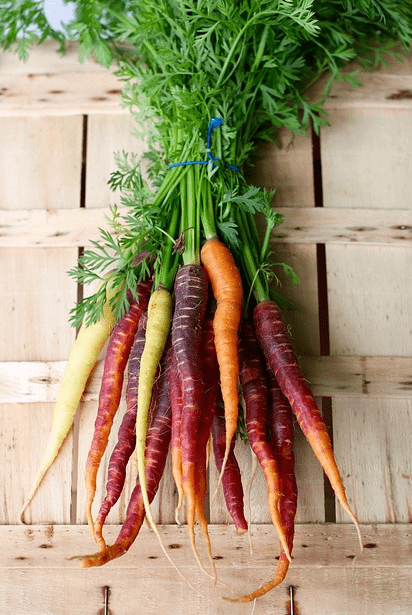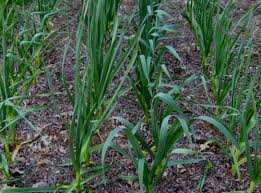Every once in a while, an article is published that brings back the discussion about organic – why do we buy organic? Why should we pay more if you can pay less? The simple answer is that what is cheap in the short term costs us dearly in the long term. The more detailed answer is –for us. For our own good. For our children. For the environment, the desire to keep our soil clean of pesticides and our water sources not polluted. For fair trade with the professionals who grow the food for us – so that we can know them firsthand, the people who work day to day to bring the vegetables to our plate, ask them questions, pay them fair wages and know that we maintain a community with healthy connections, and farmers who like to grow vegetables. Vegetables that are seen as a blessing and not a simple commodity that will be sent to a faraway shelf in a supermarket in a distant country. Eating organic food connects us to our environment. We buy specifically only what is needed, and in the right amount, and we try very hard not to throw away food. Beyond the fact that sometimes organic produce is not at all more expensive than the sprayed produce, but the opposite, rational consumption conserves resources to the environment (unnecessary waste dumping) and to us.
Organic fruits and vegetables usually are more expensive than those sprayed with synthetic pesticides for obvious reasons: if a ripe and juicy fruit or vegetable is hanging around sunbathing, nature has plenty of insects who would be happy to bite it. The work required to keep them away, without using aggressive means such as spraying chemicals, is always more complex and consumes more time and resources. Even the stray weeds, which are happy to grow in a place that enjoys good fertilizer and fertile soil, are moved politely. That is to say, by manual weeding and not by spraying chemicals that kill the plant…. The problem is that the chemicals cannot be seen, smelled or tasted (except for extreme cases, in which a severe excess of pesticides causes clear and proven side effects), so it is easy to forget that they are there. But these chemicals are definitely there – if we only remember the protective gear required to be worn by those who spray these substances, the periods when it is forbidden to even walk througha field that was sprayed, the diseases characteristic of these professions, and studies that prove that the chemicals that find their way to our plate – cause health damage down the road. And anyway, when you take an organic fruit or vegetable from the box, you do not have to peel it! Just wash well in water (mainly to remove mud or dirt) and eat the vitamins in the peel with pleasure, without worrying that it might contain unnecessary additives…
The list of materials used in "regular" agriculture and is not allowed in organic agriculture is long: from the infamous Roundup that brings dramatic headlines in the media about its long-term potential damage, through fungicides, hormones, antibiotic products and others (some, incidentally, are responsible for preserving non-organic produce for a longer time in the refrigerator – it is simply submerged in chemical preservatives, that kill fungus and bacteria. The idea of preserving agricultural produce in the refrigerator is welcome, we all prefer that our food be preserved for a longer period of time and will not spoil – but it's a shame to do so at the expense of eating materials that we don’t want inside our body. It’s much better to wash with soap and water and dry thoroughly, or soak in apple vinegar for a few minutes and dry). These substances are not good for the soilinto which they are sprayed either, and over time they deplete it, and even make it unsuitable for growing food. Soil used for organic crops, on the other hand, is happy soil, full of lots of good things – worms, good bacteria, microorganisms. It changes and develops, emitting savory fragrances after the rain and allowing all the little bodies in it to pleasurably smother in the mud, nourish it in the natural cycle of life and enrich it for the next cycle.
Those who prefer their fruits and vegetables organic are also exposed to a changing variety. What could be more exciting than the smell of a seasonal fruit, ripe and juicy, only for a short season and then let us miss it the rest of the year? Mangoes, strawberries, peaches… it is so nice to walk into the store and smell their presence from the doorway. Eat lots of them, because we remember that their season is not long, and organic stores do not store products in the freezer so they can last longer. We eat fresh, seasonal and local, paying attention to what has now ripened, and to the seasons. In the era of immediate uniform availability throughout most of the year – seasonal diversity brings with it "Mindfulness" …
For health!
Yours,
Maggie and the garden team
Forecast for this week:
Organic vegetable baskets:
Tomatoes
Cucumber
Lettuce
Mangold
Coriander
Potatoes
Spinach
Pepper
Eggplant
Beet Leaves
Large organic vegetable baskets:
Lime
Sweet potato
Parsley
Organic fruit baskets:
Oranges
Clementine
Bananas
Large Organic fruit baskets:
Papaya
Grapefruit
You can choose off course to mix and match your own order in our website.
If you are around, we are now opened on Sundays, from 1PM.

